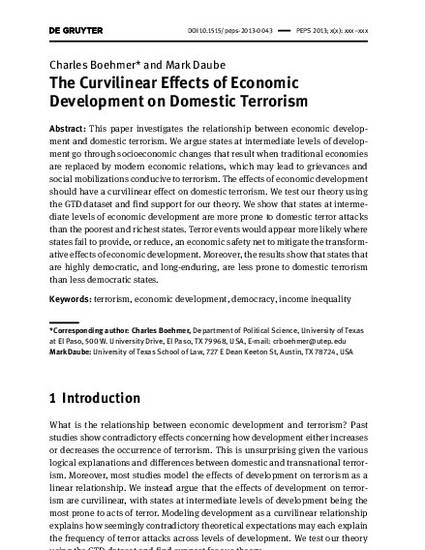
Article
The Curvilinear Effects of Economic Development on Domestic Terrorism
Peace Economics, Peace Science and Public Policy
(2013)
Abstract
This paper investigates the relationship between economic development
and domestic terrorism. We argue states at intermediate levels of development
go through socioeconomic changes that result when traditional economies
are replaced by modern economic relations, which may lead to grievances and
social mobilizations conducive to terrorism. The effects of economic development
should have a curvilinear effect on domestic terrorism. We test our theory using
the GTD dataset and find support for our theory. We show that states at intermediate
levels of economic development are more prone to domestic terror attacks
than the poorest and richest states. Terror events would appear more likely where
states fail to provide, or reduce, an economic safety net to mitigate the transformative
effects of economic development. Moreover, the results show that states that
are highly democratic, and long-enduring, are less prone to domestic terrorism
than less democratic states.
Keywords
- Terrorism,
- Economic Development
Disciplines
Publication Date
2013
Citation Information
Charles R Boehmer and Mark Daube. "The Curvilinear Effects of Economic Development on Domestic Terrorism" Peace Economics, Peace Science and Public Policy Vol. 19 Iss. 3 (2013) p. 359 - 368 Available at: http://works.bepress.com/charles_boehmer/10/
